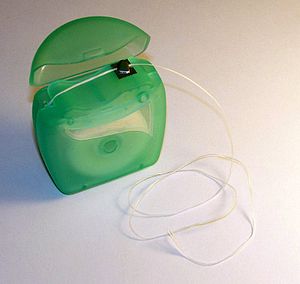Gum disease is an important early warning sign of potentially serious health problems later on in life, warn oral healthcare experts at Eludril and Elgydium.
Going to bed without brushing your teeth correctly “could potentially have a devastating effect on your long-term health.”
It is widely accepted that people with gum disease are almost twice as likely to suffer from coronary artery disease as those without it.
Also, people with diabetes are more likely to have gum disease, which can make it more difficult for them to control their blood sugar.
Pregnant women who have gum disease may be seven times more likely to have a baby that is born too early and too small.
In the past few weeks, a link has even been suggested between the incidence of gum disease and breast cancer.
So how can we avoid these potential problems?
The main culprit is dental plaque which is a biofilm, usually colourless, that develops on our teeth. It colonises bacteria and attaches itself to the smooth surface of the tooth.
At this stage the film is soft enough to be removed through regular and thorough toothbrushing. However, if it is not removed, within just 48 hours the plaque will begin to harden.
And within 10 days the plaque will become dental calculus (tartar), which is rock-hard and very difficult to remove.
If left untreated, dental calculus can lead to chronically inflamed gums, receding gums, tooth decay and bad breath. It may even result in the tooth becoming loose and falling out.
The advice from a spokesperson for oral healthcare products Eludril and Elgydium is as follows:
- practice good oral hygiene on a regular basis – dental plaque develops in under 48 hours
- brush at least twice a day for approximately two minutes each time
- floss every day, as this reaches areas that a toothbrush might miss
- visit your dentist/hygienist on a regular basis to ensure that signs of gum disease are spotted and treated as soon as possible
- replace your toothbrush every three to four months or as soon as the bristles look worn.
“Eating plenty of fresh foods and vegetables and avoiding snacking between meals will also help to keep your gums and teeth healthy.
“Should you spot the early signs of gum disease, visit your dentist as soon as possible, as the condition is easily and effectively treated if caught early and need not result in any long-term health issues.”
These are the gum disease symptoms you should be looking out for:
- sore gums or swollen gums are often early indicators of gum disease (often known as gingivitis)
- bleeding gums – it is not usual for gums to bleed. If they do so, there is something wrong
- receding gums, a sign that gum disease has been left untreated for some time.
As this condition worsens, a receding gum line will de-stabilise your teeth and they will gradually loosen, move and ultimately either fall out or have to be extracted.
Quick, easy and effective treatments are available for those who have detected the early signs of gum disease.
Experts from Eludril and Elgydium recommend that you check with your dentist for advice on which gingivitis treatment is right for you.
“The gold standard treatment for gum disease for many years has been chlorhexidine which has been proven effective against the key organisms that cause gum disease and works by inhibiting the build-up of dental plaque.”
Eludril mouthwash – which contains chlorhexidine – is an antibacterial and analgesic solution used to prevent and treat gum disease.
Choosing the right toothpaste is just as important. The Elgydium toothpaste range includes a regular Anti-Plaque paste containing chlorhexidine to help prevent dental plaque and tartar build-up.
There are also Whitening, Sensitive and Decay Protection toothpastes – but unlike many Whitening toothpastes, the whitening agent in Elgydium Whitening (Sodium Bicarbonate) is micropulverised to reduce harmful abrasion of the teeth.
Elgydium Sensitive contains a unique new-generation Fluoride called Fluorinol clinically proven to reinforce teeth against decay by binding to the enamel five times more effectively than ordinary fluoride.
Elgydium Decay Protection also contains Fluorinol, as well as a special agent called Siliglycol that keeps more fluoride on teeth – even after rinsing – to give day-long protection against decay.
For further information about protecting teeth against gum disease, please contact Nikki Pounds on +44 (0)1202 780558.
Taken from below source:
















![Reblog this post [with Zemanta]](http://img.zemanta.com/reblog_e.png?x-id=614a0fcc-6692-4d90-9911-44635e761e8f)









